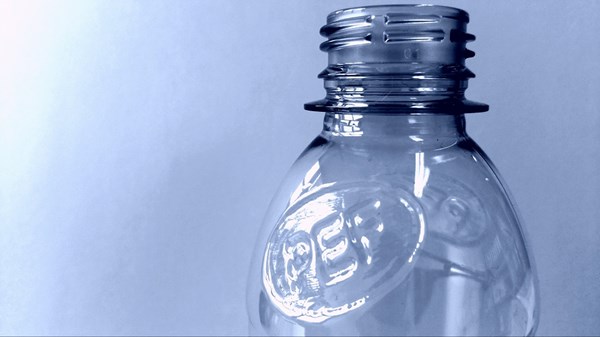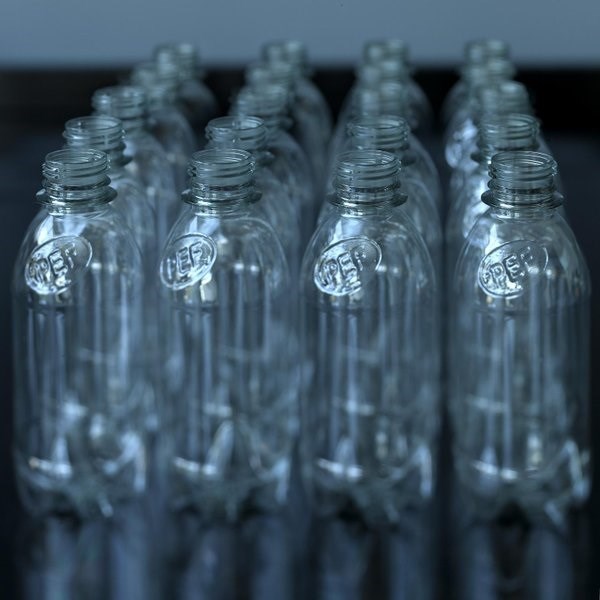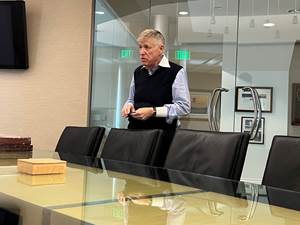Major Cash Infusion for PEF Bioplastic Barrier Resin Underway
PEFerence consortium led by Synvina awarded over $28 million to build plant for key feedstock.

It was just last year that we reported on the joint venture between BASF and The Netherlands’ Avantium to produce polyethylene furanoate (PEF), a 100% biobased alternative to PET. Called Synvina, the JV is coordinator of the 11-member industry consortium “PEFerence”, which was awarded a $28 million subsidy by the European Joint Undertaking on Bio-Based Industries (BBI), a group consisting of representatives from the EU and the biobased industry.
Besides Synvina and its shareholders BASF and Avantium, the other partners—ranging from raw material producer to brand owner are:
β Tereos Participations (France)
β Alpla Werke Alwin Lehner GmbH & Co. Kg (Austria), OMV
Machinery Srl (Italy) and Croda Nederland B.V. (The
Netherlands)
β Nestec Sa (Switzerland) and Lego Systems As (Denmark)
β Nova-Institut fur politische und okologische Innovation GmbH (Germany) and Spinverse Innovation Management Oy (Finland)
For Avantium, the goal to produce PEF has been in the works since late 2010. That was when the company commenced its pilot project for the production of furanics—a class of chemical building blocks used to produce innovative “green” fuels, chemicals, and renewable materials. The company’s furanics are branded as YXY, and by end of 2011, Avantium has started up a furandicarboxylic acid (FDCA) monomer pilot unit as well as a small YXY polyethylene furanoate (PEF) pilot plant.
Since then, Avantium has been pushing for commercial-scale production of PEF through approaches such as licensing and partnering arrangements with Coca-Cola and Alpla, in the belief that once commercial scale is achieved, PEF would compare quite favorably with bottle king PET. PEF reportedly has oxygen barrier that is 10 times that of PET, along with double the water vapor and four times the CO2 barrier. It glass-transition temperature of 190.4 F is 53.6 F higher than PET, with a tensile modulus that is 1.6 times greater. The thinking is that even though PEF has about a 5% higher density than PET, it could make lighter bottles by thin-walling and/or eliminating barrier layers.
The Synvina JV was formed to advance the production and marketing of PEF’s main and green FDCA building block, as well as marketing of PEF. Synvina will use Avantium’s YXY process for the production of FDCA, and is also further developing the process. The new grant supports the establishement of an innovative value chain for biobased raw materials as well as chemicals and materials based on PEF. Most crucially, this included the construction of a 100-million lb/yr FDCA reference plant at BASF’s Verbund site in Antwerp, Belgium.
The ultimate aim is to build up world-leading positions in FDCA and PEF, and subsequently license the technology for industrial-scale application. Because of its excellent barrier properties, high mechanical strength, and recyclability, PEF is viewed as highly suitable for the production of certain food and beverage packaging, including films and bottles. PEF is said to be suitable for the production of bottles for both carbonated and non-carbonated beverages, foil pouches as well as personal and household products.
BBI acknowledges the engagement of “PEFerence” for more ecofriendly materials and end products, resulting in substantial benefits for the environment and society. In its assessment for granting the award, BBI cited that PEF bottles can be recycled and used again as raw material for bottles, as well as for packaging and textiles. Also cited are its superior product properties to conventional PET and improved barrier properties for gases, which allow for a redefinition of packaging solutions based on PEF.
Said Synvina CEO Patrick Schiffers, “The grant of the BBI is a strong signal for Synvina and our partners along the value chain to continue our mutual process to make PEF commercially available…to open up a market for a new plastic based on renewable feedstock is a major challenge that we best meet with strong partners and our combined expertise. We share the common goal to get PEF commercially to the market thereby providing the market materials with superior properties and to establish sustainable and biobased plastic value chains.”

Related Content
Impacts of Auto’s Switch to Sustainability
Of all the trends you can see at NPE2024, this one is BIG. Not only is the auto industry transitioning to electrification but there are concerted efforts to modify the materials used, especially polymers, for interior applications.
Read MoreBMW Group Vehicle to Adopt 3D Printed Center Console
A vehicle coming to market in 2027 will include a center console carrier manufactured through polymer robot-based large-format additive manufacturing (LFAM).
Read MoreWhat to Look for in High-Speed Automation for Pipette Production
Automation is a must-have for molders of pipettes. Make sure your supplier provides assurances of throughput and output, manpower utilization, floor space consumption and payback period.
Read MoreUS Merchants Makes its Mark in Injection Molding
In less than a decade in injection molding, US Merchants has acquired hundreds of machines spread across facilities in California, Texas, Virginia and Arizona, with even more growth coming.
Read MoreRead Next
Lead the Conversation, Change the Conversation
Coverage of single-use plastics can be both misleading and demoralizing. Here are 10 tips for changing the perception of the plastics industry at your company and in your community.
Read MorePeople 4.0 – How to Get Buy-In from Your Staff for Industry 4.0 Systems
Implementing a production monitoring system as the foundation of a ‘smart factory’ is about integrating people with new technology as much as it is about integrating machines and computers. Here are tips from a company that has gone through the process.
Read More












